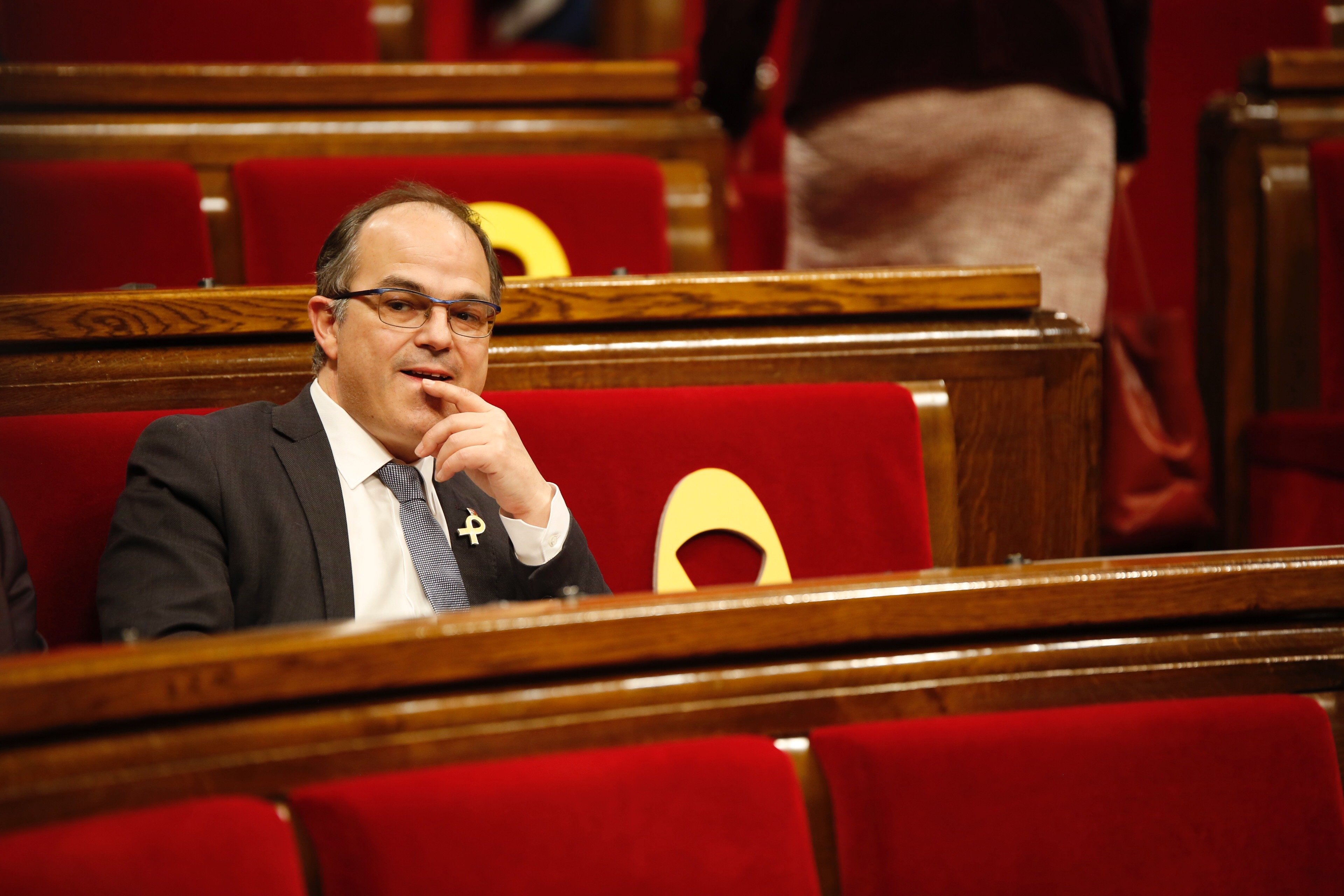JxCat's candidate for president of Catalonia, Jordi Turull, hasn't managed to get enough votes in today's investiture debate, the first to be held since the election on 21st December last year, a debate marked by six of the deputies, including Turull, being summonsed to appear before Spain's Supreme Court tomorrow. Pro-independence party CUP announced their abstention at the last minute, meanwhile, between them, JxCat and ERC didn't have the absolute majority needed in a first round for a candidate to be invested. Turull got 64 votes (Carles Puigdemont and Toni Comín, in exile, couldn't vote in person or by proxy), needing 68, with CUP's 4 deputies abstaining and the other groups totalling 65 against.
The Parliament of Catalonia has thus today seen the most surprising investiture debate. With self-government suspended and members of the previous executive in exile and prison, the chamber heard the third candidate proposed by JxCat, Jordi Turull, argue for his investiture knowing that it wouldn't come about and that whatever he said today could be used against him tomorrow before the judge who, after announcing final details of his prosecution at the end of the investigation, could decree him to be held in pretrial detention. The candidate focused his speech on a call for dialogue with Spain and avoided discussing creating the Catalan republic.
In fact, whilst Turull was speaking it was learnt that the Civil Guard, Spain's gendarmerie, accuse him of being "extraordinarily important" to the independence process. Listening to him from their seats in the Parliament were the five deputies to go to Madrid with him tomorrow: ERC's secretary general, Marta Rovira, former Parliament speaker, Carme Forcadell, and ministers Dolors Bassa, Josep Rull and Raül Romeva.
Minutes before the debate started CUP announced they wouldn't support the investiture. Faces on one side of the chamber relaxed; on the other they dropped. Even the protests from Ciutadans' about the debate being called at the last minute after a round of talks by telephone seemed a mere formality.
The candidate insisted in his speech on dialogue with the Spanish state, calling directly on the king and Spanish government. But the gravity of the situation weighed heavily on his speech leading him to avoid discussing much politics, for which he was criticised both by CUP and opposition spokespeople, who joked about the absence of the proclamation of the Republic in his speech.
"The first person who knows you won't be president is you yourself Mr Turull", said Ciutadans' leader, Inés Arrimadas, who said that the efforts to divide Spain had had the opposite effect, causing an upsurge in Spanish nationalism. "Will you have the bravery to say that that's a lie that you haven't even believed yourselves," she asked.
From PSC, following the news that CUP wouldn't support the investiture, Miquel Iceta jokingly asked "why have we rushed so?". He also joked about the turn in the candidate's rhetoric, describing it as supporting Catalonia's current status as an autonomous community. Xavier Domènech, from CeC, echoed this description whilst PP's Xavier García-Albiol showed mistrust of the offer of dialogue and asked "which Jordi Turull do we have to believe".
Carles Riera (CUP) criticised him for making a speech which didn't fit a republican candidate, but one from PDeCAT.
On the other hand, JxCat's spokesperson, Eduard Pujol, thanked him for his determination in defending his candidacy. "The importance of the moment required a generous reading that would have been vital", he said, a comment aimed sideways at CUP. ERC's spokesperson, Sergi Sabrià, meanwhile, warned that they couldn't put at risk the 'yes' victory in last year's independence referendum.
At the end of today's session, the speaker announced that the second round of the investiture debate will be held this Saturday at 10am. In that vote, a simple majority is all that's required, so more 'yeses' than 'noes'. If that fails too, the count down has now started to new elections unless the parties can reach some agreement to present another candidate who does prove successful within two months.

